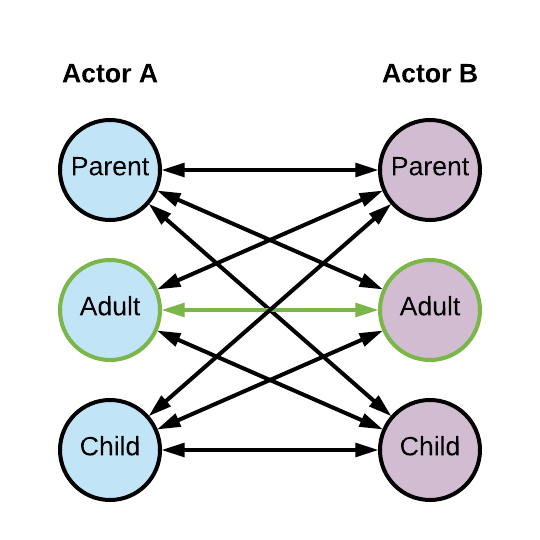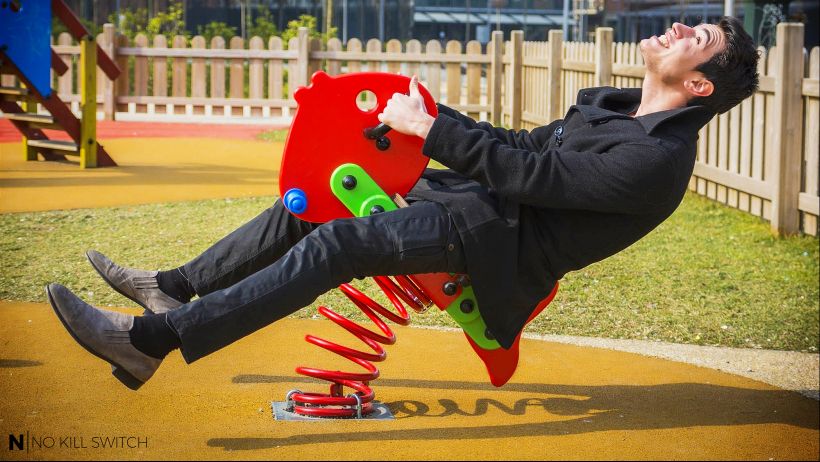This blog post is all about: psychoanalysis :), that we all behave (occasionally) like parents & children, if you adopt parent ego state - you're forcing your interlocutor to adopt child stance, sometimes to resolve discussion that seems irreversibly stuck - the easiest way is to map the interaction to psychoanalytic model/pattern.
I love working with smart people - apart from all the other reasons, I keep learning new stuff from them on daily basis. That's how I've come up with the topic of this blog post (thanks Agnieszka!) - this stuff is so good, I couldn't resist sharing it with you ... So let me introduce you to: Transactional Analysis.
OK, let's face it - the name is terrible. Sounds super-generic - like some corporate bullshit concept that lacks any unique substance behind :)
Transactional Analysis is a ... psychoanalytic theory which claims that in conversations (not any particular ones, but in general - let's stay at 2 participants for the sake of simplicity) we adopt one of just few stances (each one can adopt at different one) that closely resemble ego state of "parent", "adult" or "child" ...

Wait, it's only getting better :)
Parent
To make things more interesting, "parent" stance comes in 2 flavors:
- nurturing one - where parent cares about "his child", tries to be helpful - but primarily in an overwhelming, overprotective & paternalistic way
- critical one - where parent "always knows better" and instantaneously criticises everything that doesn't conform to his/her opinion
Adult
"Adult" stance is simple & straightforward - person who adopts this attitude is open-minded, listens actively, discusses rationally, strives towards set-up goals/outcomes & doesn't subdue to her/his emotions.
Child
Finally, the "child" stance diverges into two paths (like the parent one):
- free one - which is about rebelling, (ab)using the right to have your own opinion (by stubbornly denying/rejecting other people's input)
- adapted one - which is all about the conformance, avoiding any kind of conflict (even constructive), adhering to someone else's will
Not a rocket science so far, right?
As you might have already guessed, the most beneficial of the stance mentioned above is the "adult" one - two adults can easily have a productive discussion that will result in valuable conclusions. But ...
... in reality ("in the wild"), it's very easy to slip out of "adult" stance to "parent" one: hubris, high self-esteem, pride, impatience, competitive personality - any of these (and many more) can shift us to either "nurturing parent" or "critical parent" stance. Which, as a consequence, pushes our interlocutor towards one of "child" stances (as a natural form of defense!):
- if the said person submits to our "parenthood", it switches to "adapted child" stance
- otherwise, it ends up as "free" (the rebelling) one
And so it goes - deep, energetic emotions favour "child" stances while over-rationalising peppered with strong belief in one's reason draw us towards "parent" stances. Needless to say all combinations of stances happen "in the wild" - some are more common, while some are "reserved" for more specific cases.
Aaaand this was the moment of enlightenment for me (when I was reading up on these very details) - OMFG, I have been experiencing situations that directly correspond to these patterns pretty much every bloody day! I've experienced (& even played a role in) so many (if not all) of stance combinations, including:
- experts who "have seen everything" & "know better" while the other party tries to calmly explain them their fallacies
- manager who doesn't believe in his subordinates, so he does "the hard part" for them (which they gladly accept)
- people with incurable rebelling attitude that will never accept help/support, as they perceive it as a threat to their autonomy or an attempt to control them
- circles of mutual adoration :) consisting of few "parents" who adore belittling everyone else, complaining on everyone's incompetence & how everyone wastes their time
- sheep-people who need someone shepherding (parenting) them on daily basis, otherwise they loose focus, confidence & any orientation on goal they had
- emotional, marital "discussions" when we (my wife & myself) took turns :) in playing roles of critical parent & rebellious child :)
This theory is freaking brilliant!
Seriously, I'm not going to dive deeper into post-freudian considerations of how our own relationships with parents (yikes!) may determine stances we (subconsciously) lean towards in adult life, but I truly have a feeling that trying to map actual interaction (conversation) on one of the Transactional Analysis combinations can really be very helpful with understanding the real issues (especially when we clearly see that discussion is not progressing) & achieving much more fruitful outcomes.




